Overview
Fusing science with creativity
On this course, you'll fuse creativity with the science and technology needed to make architectural plans a reality. We'll prepare you with design, technical and management skills, and teach you to apply scientific principles and practical knowledge to meet performance criteria.
The BSc (Hons) Architectural Technology course is a 3 year full time degree and 5 years part time degree, with options for placement year and an undergraduate apprenticeship.
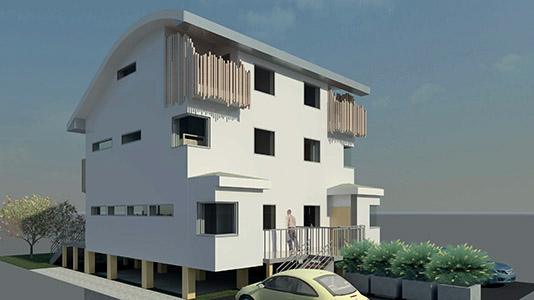 | 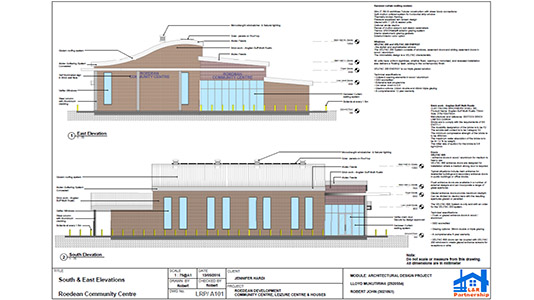 | 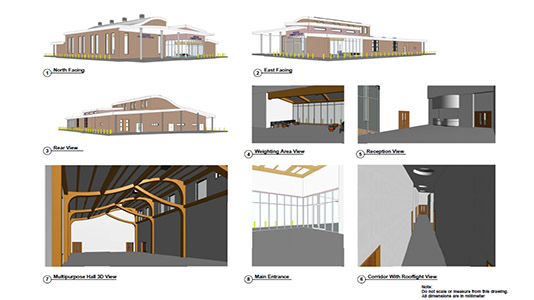 |
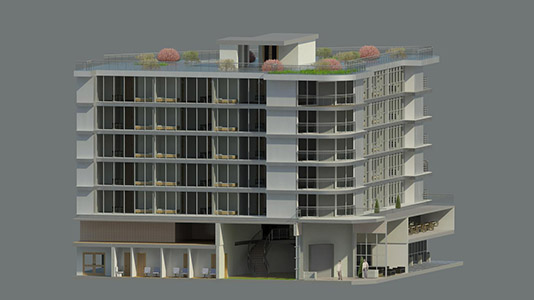 | 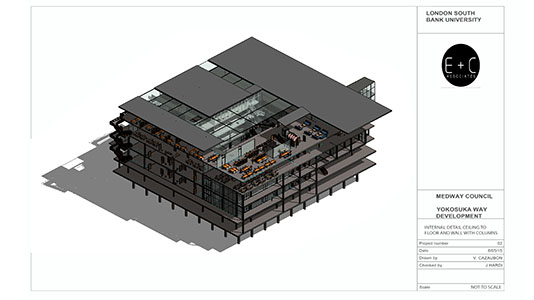 | 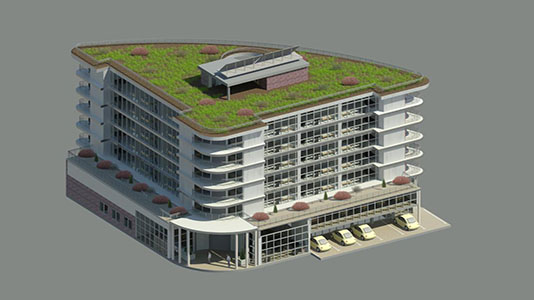 |
Why Architectural Technology at LSBU?
- check-circle
- Accredited by the Chartered Institute of Architectural Technologists (CIAT) and the Chartered Institute of Building (CIOB).
- puzzle-piece
- Option to complete your third year in a paid professional work placement. Our students have secured placements and graduate roles at companies including DHA Architecture, Robert Davies John West Ltd and WSP.
- grad
- All surveyed students on this programme said that the course is developing their knowledge and skills for the future and gives them the chance to explore ideas and concepts in depth. (National Student Survey 2024)
- paper-plane
- For those holding a relevant HNC/D it is possible to enter the course in the third year and 'top up' your existing qualification to a full degree. To apply, use UCAS (full-time) or apply direct to LSBU (part-time) and simply indicate which year of the course you wish to join.
Choose the course that’s right for you
We’ve put together this handy FAQ (PDF File 480 KB) for our Architecture and Architectural Technology programmes to help you pick the course that suits you best, and most closely matches up to your career expectations.
| ModePart-time | Duration5 years | Start dateSeptember | Application code2308 | Application method Direct to LSBU |
| ModeFull-time | Duration3 years | Start dateSeptember | Application codeK235 | Application method UCAS |
| ModeSandwich | Duration4 years | Start dateSeptember | Application codeK235 | Application method UCAS |
Watch our video to see how you can make yourself at home studying at LSBU.
Location
London South Bank University student union is located at 103 Borough Rd, London SE1 0AA.
If you are visiting our Southwark Campus, you may wish to use our downloadable campus map (PNG File 466 KB). For information on accessibility, see our DisabledGo access guides. See our location page for more details.
Entry Level Requirements
Need further information? Call us on 0800 923 8888 to discuss entry requirements.
- 112 UCAS points. Visit UCAS for guidance on the tariff.
If you do not meet the entry criteria above we also review any previous skills, knowledge or experience you have gained outside of your education and are happy to talk through any extenuating circumstances you feel relevant.
Choose your country
Select country here:
Missing English and Maths qualifications?
If you do not have the required English and Maths qualifications needed to satisfy the entry requirements for this programme, we have courses available at our partner College that you can take to upskill in these areas. Find out more at South Bank College.
Advanced entry
If you have already completed some studies at another university, we may be able to consider you for advanced entry. Please see our advanced entry page for more information.
Course status
Accreditation and Course validation status
This course is validated by London South Bank University. Applications are being accepted.
United Kingdom
£9535
Tuition fees for home students
International
£15500
Tuition fees for international students
Tuition fees are subject to annual inflationary increases. Find out more about tuition fees for Undergraduate or Postgraduate courses.
-
Part-time
part-time
BSc (Hons) Architectural Technology (PT) - Year 1
UK fee: £5721 International fee: £9300 AOS/LSBU code: 2308 Session code: 1PS00 Total course fee: * The full amount is subject to fee increases, the total shown below is based on current fees.
UK: £28605 International: £46500 BSc (Hons) Architectural Technology (PT) - Year 2
UK fee: £5721 International fee: £9300 AOS/LSBU code: 2308 Session code: 2PS00 Total course fee: * The full amount is subject to fee increases, the total shown below is based on current fees.
UK: £28605 International: £46500 BSc (Hons) Architectural Technology (PT) - Year 3
UK fee: £5721 International fee: £9300 AOS/LSBU code: 2308 Session code: 3PS00 Total course fee: * The full amount is subject to fee increases, the total shown below is based on current fees.
UK: £28605 International: £46500 BSc (Hons) Architectural Technology (PT) - Year 4
UK fee: £5721 International fee: £9300 AOS/LSBU code: 2308 Session code: 4PS00 Total course fee: * The full amount is subject to fee increases, the total shown below is based on current fees.
UK: £28605 International: £46500 BSc (Hons) Architectural Technology (PT) - Year 5
UK fee: £5721 International fee: £9300 AOS/LSBU code: 2308 Session code: 5PS00 Total course fee: * The full amount is subject to fee increases, the total shown below is based on current fees.
UK: £28605 International: £46500 -
Full-time
full-time
BSc (Hons) Architectural Technology (FT) - Year 1
UK fee: £9535 International fee: £15500 AOS/LSBU code: 2309 Session code: 1FS00 Total course fee: * The full amount is subject to fee increases, the total shown below is based on current fees.
UK (excluding any optional years): £28605 UK (including any optional years): £28605 International (excluding any optional years): £46500 International (including any optional years): £46500 BSc (Hons) Architectural Technology (FT) - Year 2
UK fee: £9535 International fee: £15500 AOS/LSBU code: 2309 Session code: 2FS00 Total course fee: * The full amount is subject to fee increases, the total shown below is based on current fees.
UK (excluding any optional years): £28605 UK (including any optional years): £28605 International (excluding any optional years): £46500 International (including any optional years): £46500 BSc (Hons) Architectural Technology (FT) - Year 3
UK fee: £0 International fee: £0 AOS/LSBU code: 2309 Session code: 3FS00 Total course fee: * The full amount is subject to fee increases, the total shown below is based on current fees.
UK (excluding any optional years): £28605 UK (including any optional years): £28605 International (excluding any optional years): £46500 International (including any optional years): £46500 BSc (Hons) Architectural Technology (FT) - Year 4
UK fee: £9535 International fee: £15500 AOS/LSBU code: 2309 Session code: 4FS00 Total course fee: * The full amount is subject to fee increases, the total shown below is based on current fees.
UK (excluding any optional years): £28605 UK (including any optional years): £28605 International (excluding any optional years): £46500 International (including any optional years): £46500
For more information, including how and when to pay, see our fees and funding section for undergraduate students.
Please check your fee status and whether you are considered a Home, EU or International student for fee-paying purposes and for our regulatory returns, by reading the UKCISA regulations.
See our Tuition Fees Regulations (PDF File 391 KB) and Refund Policy (PDF File 775 KB).
Possible fee changes
The University reserves the right to increase its fees in line with changes to legislation, regulation and any government guidance or decisions.
The fees for international students are reviewed annually and the University reserves the right to increase the tuition fees in line with the RPIX measure of inflation up to 4 per cent.
Scholarships
We offer several types of fee reduction through our scholarships and bursaries. Find the full list and other useful information on our scholarships page.
International students
The course is not currently open to international students.
International (non Home) applicants should follow our international how to apply guide.
Home and International entry
| Mode Part-time | Duration 5 years | Start date September | Application code 2308 | Application method Direct to LSBU |
| Mode Full-time | Duration 3 years | Start date September | Application code K235 | Application method UCAS |
| Mode Sandwich | Duration 4 years | Start date September | Application code K235 | Application method UCAS |
Accommodation
Once we have made you an offer, you can apply for accommodation. You can rent from LSBU and you’ll deal directly with the university, not third party providers. That means we can guarantee you options to suit all budgets, with clear tenancy agreements and all-inclusive rents that include insurance for your personal belongings, internet access in each bedroom and on-site laundry facilities.
Or, if you’d rather rent privately, we can give you a list of landlords – just ask our Accommodation Service.
Read more about applying for accommodation at LSBU.
Finance
You don't need to wait for a confirmed place on a course to start applying for student finance. Read how to pay your fees as an undergraduate student.
Prepare to start
Applicant events
After you’ve received your offer we’ll send you emails about events we run to help you prepare for your course.
Enrolment
Before you start your course we’ll send you information on what you’ll need to do before you arrive and during your first few days on campus. You can read about the process on our Enrolment pages.
Preparatory reading list
- Temple, M.(2004) Studying the built environment. Hampshire: Palgrave Macmillan.
- Parker, D. (1994) Tackling coursework: assignments, projects, reports and presentations. London: Letts Educational
- Domone, P. & Illston, J., 2010: Construction Materials. Their Nature and Behaviour (4th Ed), Taylor & Francis
- Using Light Steel Framing: Design of Residential Buildings
- Seward, D., 2009: Understanding Structures (4th Ed), Palgrave Macmillan
- Taylor, G.D., 2000: Materials of Construction (3rd Ed), Longman
- Bradney, A., Cownie F., Masson J., Neal A.C., Newell D., (2010) How to Study Law (6th edn.) Thompson, Sweet & Maxwell, London.
- Coyle, D., (2004) Sex, Drugs and Economics, an Unconventional
- Introduction to Economics, Thomson, Australia, New York.
- Mankiw, N.G., and Taylor, M. P., (2010), Economics, Thomson, London.
- Turner C., and Hodge S., (2010) Unlocking Torts (2nd edn.) Hodder, Turner, London.
- Turner C., (2010) Unlocking Contract Law (3rd edn.) Hodder, Turner, London.
- McMullan R, Environmental Science in Building, Macmillan, 6th Edn, 2007
- Hall F and Greeno R, Building Services Handbook, Butterworth Heinemann, 5th Edition, 2009
- Randall Thomas, (2006), Environmental Design, An introduction for Architects and Engineers. , (3rd edition), London ; New York : Taylor & Francis.
- Moffett M, Fazio M, Wodehouse L, (2008) A World History of Architecture (2nd Edition), Laurence King Publishing.
- Brookes, A.J. & Meijs, M., Cladding of Buildings, 2007
- Eisele, J. & Klaft, E. (Eds.), High Rise Manual: Typology and Design, Construction and Technology, 2003
- Reichel, A., Ackermann, P., Hentschel, A. & Hachberg, A., Building with Steel: Details, Principles, Examples, 2007
This course covers building design and technology, 3D visualisation, project and contract management, and architectural conservation.
Methods of assessment for course overall: 65% coursework.
Year 1
- Architectural design and technology 1
This module focuses on three areas of work: design principles, basic CAD, and technology. Assessment method: 100% coursework. - Building services and environmental science
This module focuses on building services and the environmental performance, and develops an understanding of how buildings perform in the areas of acoustics, heat and moisture transfer, lighting, ventilation and air conditioning design. The underlying principles of each topic will be covered, together with more advanced applications, enabling you to demonstrate an understanding of building performance to other professionals within the industry. Assessment methods: 50% coursework, 50% exam. - Construction technology and materials
This unit will introduce you to the study of building materials and how buildings are pieced together (i.e. building technology). Assessment methods: 50% coursework, 50% exam. - Construction technology and structures
This module will introduce you to the study of building technology associated with larger, more complex buildings, as well as to the fundamentals of structural analysis. Assessment methods: 50% coursework, 50% exam. - Legal and economic context
The legal content of this module will introduce the sources and basic rules of UK law, including common law and statute law, as it affects construction and property professionals. It will provide an introduction to construction contract law, and tort and restitution law as they affect professionals. It will explain the differences between common law and equity and criminal law, and their relevance to construction and property professionals. It will establish the legal and ethical framework of Health and Safety regulation. The economics content of the module will introduce you to micro and macro economics, and will examine the theoretical and empirical framework of economics, including price formation, the theory of the firm, degrees of competition, Government economic objectives, monetary policy, behavioural economics, contract theory, inflation and unemployment. Assessment method: 100% coursework. - Construction practice
This module aims to provide you with the knowledge of the interrelationships between industry, professional bodies and education, and an understanding of key professional and research requirements. It will provide you with a roadmap for your professional career, and will enable you to prepare for employment in the construction discipline. Assessment method: 100% coursework.
Year 2
- 3D computer aided design and building information modelling
This module introduces the concepts of Building Information Modelling (BIM) through the development of architectural 3D models on industry standard parametric CAD systems. The module covers the practical competence of architectural modelling and provides exposure on co-ordinating building information models. Assessment method: 100% coursework. - Architectural design procedures
This is an individual architectural design project embracing design studio and technology studio against a defined brief. Assessment method: 100% coursework. - Construction contract law
This module examines the various types of construction contracts, including families of standard construction contracts, and the common law and legislation and administrative procedures which govern them. It provides a working knowledge and understanding of construction contract legal problems, and related applicable law, such as non-contractual liabilities. It examines when a dispute arises in legal terms, and how dispute resolution methods may be employed to resolve problems and disputes. Assessment method: 100% coursework. - Measurement, cost planning and tender process for architects and building surveyors
This module is designed to provide you with an overview of cost control of construction projects. It introduces basic measurement and documentation and sets these skills in the tender and contract formation process. Basic analytical and approximate estimating skills and procedures are also covered. Assessment method: 100% coursework. - Property inspection, repair and maintenance
This module focuses on the range of techniques used by building surveying professionals in the undertaking of different types of surveys on commercial and large residential properties. It also focuses on the development of planned maintenance programmes and reviews financial controls and planned roll-out programmes of work, facility and asset management, building and fire safety legislation, post occupancy legislation incl. the Party Wall etc Act. Assessment method: 100% coursework. - Theory of architecture, design and conservation
This module is an in-depth review of key aspects of architecture theory, modern design and conservation through the study of selected British case studies. Assessment method: 100% coursework.
Year 3
- Optional placement year
Year 4
- Research project
This module applies research method skills on a project-based, applied research topic chosen by you, which includes two main phases: an initial research project proposal submitted for approval and the preparation of the full research project at the end of the module. Assessment method: 100% coursework. - Contract administration
This module provides the knowledge necessary for the execution of the contractual duties of architects, building surveyors, property and construction managers in contracting and development companies, consultancy practice, public service and private corporations. It's designed to build on and apply knowledge obtained from a study of construction law. The module is an introduction to the period of professional training necessary to qualify as a professional and covers key areas of practice. Assessment methods: 50% coursework, 50% exam. - Sustainable construction and the environment
This module looks at the increasing important role of energy and environmental factors that are increasingly impacting on buildings, their use, and their occupants. Assessment methods: 50% coursework, 50% exam. - Architectural design project
This module will require you to develop an architectural design project embracing design studio and technology studio against a defined brief. Assessment method: 100% coursework. - Architectural design and technology 2
This module provides the elements of design and technology research in preparation for the main architectural design project in the second semester. Assessment method: 100% coursework. - Architectural practice management
This module looks at the role of managing an architectural practice, the forms of ownership, managing human resources, sources of finance, budget and accounting, marketing, and leading project work. Assessment method: 100% coursework.
Careers
Employability Service
At LSBU, we want to set you up for a successful career. During your studies – and for two years after you graduate – you’ll have access to our Employability Service, which includes:
- An online board where you can see a wide range of placements: part-time, full-time or voluntary. You can also drop in to see our Job Shop advisers, who are always available to help you take the next step in your search.
- Our Careers Gym offering group workshops on CVs, interview techniques and finding work experience, as well as regular presentations from employers across a range of sectors.
Our Student Enterprise team can also help you start your own business and develop valuable entrepreneurial skills.
Architectural Technologists are enlisted on architectural projects to translate designers' intentions into feasible development proposals. They are specialists in analysing the requirements and challenges of a construction project and applying the best fit in terms of technology, materials and processes.
A fully qualified Chartered Architectural Technologist can manage construction projects from design through to build. The profession requires strong drawing skills, problem-solving abilities and attention to detail. Also, as an array of software is used on a daily basis, it's important to be IT literate.
While architects are responsible for coming up with initial concepts and designs, architectural technologists are more concerned with the technical side of construction. They work closely with architects and other building professionals to resolve any potential design problems before construction starts.
Work activities can vary depending on the project, but typical duties can include:
- selecting the best materials and processes for the project
- surveying sites and identifying location benefits
- carrying out feasibility studies and risk assessments
- assessing environmental impacts and identifying legal issues
- analysing architectural plans and drawings, highlighting any possible risks or problems and making amendments using computer-aided design applications (CAD)
- specifying the appropriate technology and tools to be used in the project and advising where this requires deviation from the initial design plans
- liaising with the architect, surveyors and other construction professionals, sometimes managing the design project team
- preparing documents to help with getting planning permission and similar approvals
- visiting sites to check progress and inspect work.
This course will prepare you for a career within the design and architectural fields, where you use sound technical skills and scientific principles to meeting building performance criteria.
You'll boost your employability through our vocational approach to teaching, an (optional) placement, and (optional) summer experience opportunities.
We're accredited by the Chartered Institute of Architectural Technologists, so you'll receive exemptions against your Professional and Occupational Performance (POP) Record - which is needed to become a Chartered Architectural Technologist (MCIAT).
Becoming an architectural technician is another popular route, and other career paths include working in surveying and in town planning.
Continuing to postgraduate studies
If you graduate from this course, you'll be able to apply for further study at postgraduate level, including our MSc Construction Project Management, MSc Building Surveying and MSc Quantity Surveying – all of which are fully accredited by the Royal Institution of Chartered Surveyors (RICS).
The academic strength of this course means that you can also consider entering the field of academic research and an academic career.
Recent graduates have taken up positions such as research associate and university lecturer, while others have pursued Doctoral studies after completing a Masters degree.
Accreditation
This course is accredited by the Chartered Institute of Architectural Technologists (CIAT) and the Chartered Institute of Building (CIOB).
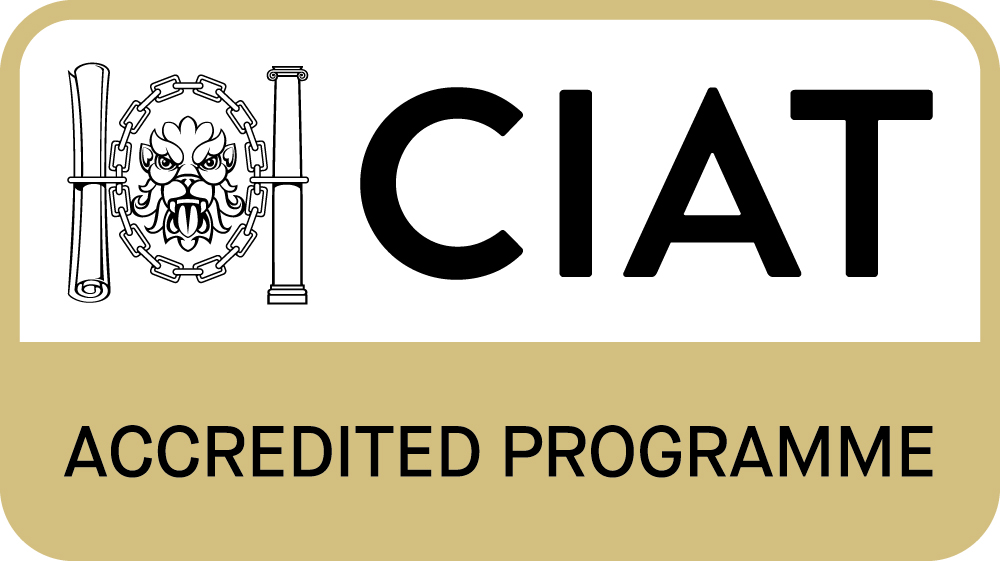
- The Chartered Institute of Architectural Technologists (CIAT) is an internationally-recognised organisation representing professionals working and studying in the field of Architectural Technology, and offering chartered status to its growing network of members based around the globe.

- The Chartered Institute of Building (CIOB) focuses on those entering and already in a management career in construction. It delivers qualifications and certifications that meet the needs of a changing industry.
Expertise and history
With roots in the London Council School of Building (1904) and Brixton School of Building (1940), we have been offering training in this sector for over 100 years.
Our central London location is a great place from which to build professional networks – opportunities are concentrated in London and south east England. We put considerable energy into developing quality professional links, inviting practitioners to contribute to teaching and studio sessions and holding lectures where external guest speakers include established and emerging professionals and companies from the construction industry and internationally recognised researchers. These links help you gain the skills that employers really want.
Placements
In your third year you’ll have the option to study abroad, taking advantage of our links with excellent European schools such as Delft Technical University in Holland, the University of Granada and ETH Zurich.
You’ll usually undertake a work placement after your third year. You arrange this yourself, but our staff are on hand to help.
Graduate destinations for students on this course include:
- DHA Architecture
- Robert Davies John West Ld
- WSP
Positions include:
- Architectural CAD Technician
- Architectural Technologist
Teaching and Assessment
| Lectures, seminars and workshops | Self-directed study | |
|---|---|---|
| Year 1 | 35% | 65% |
| Year 2 | 24% | 76% |
| Year 3 | 20% | 80% |
Personal Tutoring
As a Built Environment and Architecture student, you will be allocated a named tutor during your first three weeks at LSBU. The role of your tutor is to be your primary contact for academic and professional development support.
Your tutor will support you to get the most of your time at LSBU, providing advice and signposting to other sources of support in the University.
Your tutor should be the first person at the university that you speak to if you are having any difficulties that are affecting your work. These could be academic, financial, health-related or another type of problem.
You will have appointments with your personal tutor twice a semester for 30 minutes throughout your course. You can contact your tutor for additional support by email or in person.



